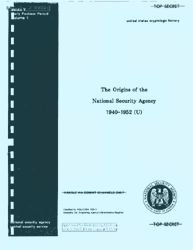The generality of the discussions of being, the transcen-dentals, and the categories, strongly suggested to medieval thinkers that there are things that are both independent of the mind and really common to many individuals. The majority of medieval philosophers were ‘‘realists,’’ where this means that they thought that there was some sense in which there are mind-independent features (but not necessarily things) that are common to many. A small but influential group of philosophers rejected the thesis that there were any things or aspects that existed universally and mind independently. These philosophers are typically labeled as ‘‘nominalists,’’ since they generally argued that universality is a property of names (nomina) or concepts only. However, it should be stressed that no medieval believed that there were no properties or abstract objects (a position that is nowadays occasionally associated with the term “nominalism”).
Some realists argued that universals were things that literally were a part of an individual composite thing. The version prevalent in the later eleventh and early part of the twelfth centuries has been called ‘‘material essence’’ realism (Tweedale 1976:95-111). Peter Abelard attributes such a view to his master William of Champaeux and, as Abelard reports matters, he publicly demolished the view early on in his career (see Log. Ingr. I, 10-13 [Spade 1994:29-33]). Whether Abelard personally brought an end to material essence realism is not absolutely certain. What is clear is that no thirteenth-century philosopher of note embraced material essence realism. However, a more sophisticated version of material essence realism seems to be the considered later position of Walter Burley and his followers.
The most popular versions of realism in the Scholastic Period were forms of what scholars describe as ‘‘moderate realism.’’ Moderate realists argued that a nature or essence is only really universal when it is in the mind. In the mind-independent world, the nature is somehow individualized, so that the nature that is in Socrates is not numerically the same as the nature in Plato.
Like Abelard before him, William of Ockham embarked on a systematic attack of all the forms of realism current in his day. He concluded from this exercise that universals had no reality outside of the mind.
Peter Abelard, William of Ockham, and other nominalists tended to point out the metaphysical difficulties that plagued the various forms of realism. They proposed instead that all things are fundamentally particular. Universality is restricted to the realm of concepts or language. But while realists were plagued by metaphysical difficulties - especially difficulties that centered around identity and difference - the nominalists were plagued by epistemological difficulties. Predicating a universal of an individual can only be legitimate if there is some real basis for the predication. Otherwise, as Boethius famously pointed out, predications are ‘‘empty’’ - that is, they convey nothing truthful about reality as such. But by banishing universals to the realm of the mind and language, the nominalists appeared to undermine the foundations of science.




 World History
World History









